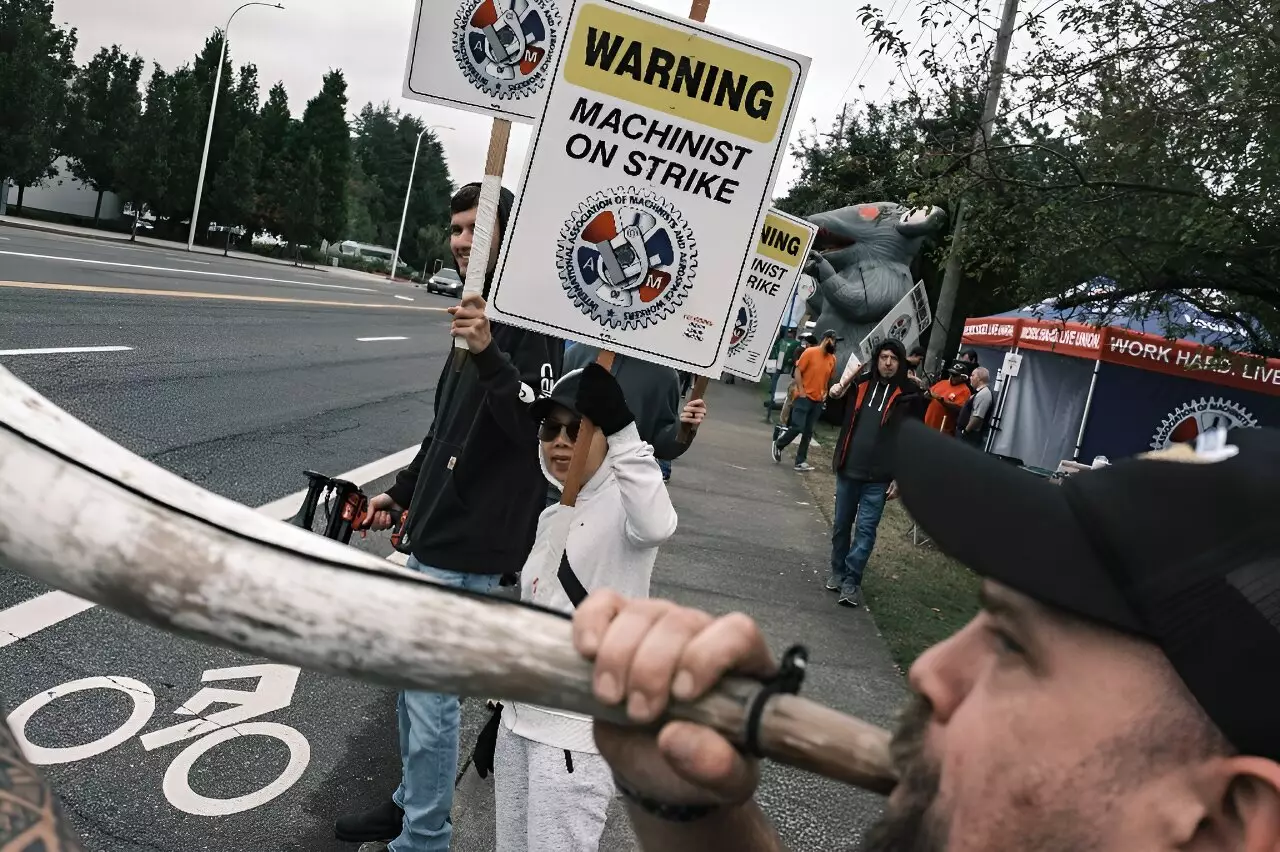In an unprecedented move, approximately 33,000 Boeing workers in the United States commenced a strike earlier this month, effectively crippling production lines in the Pacific Northwest. The aircraft manufacturer faces significant disruptions as workers protest a rejected contract offer, which they deemed inadequate. This situation not only highlights labor unrest but also raises questions about the company’s long-term strategies and employee relations. The strike, which began on September 13, has sent ripples through the aviation industry, underscoring the critical role that workers play in maintaining operational efficiency and organizational stability.
As negotiations have stalled, both parties find themselves at an impasse, with the International Association of Machinists and Aerospace Workers (IAM) expressing disappointment over the lack of progress. The union’s announcement that discussions had “broken off” indicates a breakdown in communication and a failure to address key concerns effectively. Boeing attempted to placate the striking workforce by proposing a “best and final offer” which included a 30 percent wage increase and the reinstatement of an annual bonus. However, the IAM’s response suggests that such measures are insufficient in addressing the deeper issues at play, particularly regarding worker pensions and benefits.
At the heart of the dispute lies a series of critical issues that workers believe have not been adequately addressed. The IAM has voiced strong opposition to Boeing’s refusal to unfreeze the defined benefit pension plan, a matter that resonates deeply with many employees who value financial security in their retirement. Furthermore, the union has highlighted the need for higher pay, faster wage progression, and more generous paid time off as essential components of any agreement. Workers feel that the current proposals do not align with their needs and aspirations, which raises concerns about morale and company culture if left unresolved.
This dispute at Boeing is set against a backdrop of a broader labor movement that has seen many sectors rallying for better wages and working conditions. As more workers take to the streets demanding change, Boeing’s hesitation to fully engage with the IAM could signal a problematic trend for future negotiations. The company has stated its commitment to restoring a cooperative relationship with its employees, but without substantive offerings that address the fundamental concerns of its workforce, achieving meaningful resolutions will remain a challenging endeavor.
The stalemate at Boeing highlights an urgent need for meaningful dialogue and understanding between management and labor. As both sides remain entrenched in their positions, the path forward appears uncertain. The continuing strike not only impacts production but reflects larger trends in labor relations and the growing demand for workers’ rights across various industries. For Boeing, the challenge lies in overcoming existing divides and finding common ground that acknowledges the contributions and well-being of its employees, paving the way for a more harmonious and productive future. The outcome of this situation will have lasting implications both for the company and the employees who have stood firm in their demands for change.


Leave a Reply